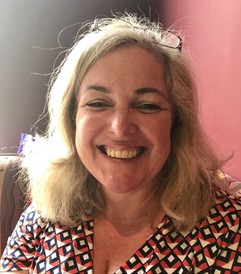 P-1 Mandioca, macaxeira, aipim: quando a culinária vira uma salada russa
P-1 Mandioca, macaxeira, aipim: quando a culinária vira uma salada russa
(Thursday, 11:15am-12:15pm; All Levels; Presented in: English and Portuguese)
The speaker will discuss real instances of English>Portuguese translations of recipes, ingredients, and menus. The discussion will also focus on regional dialect variation among Lusophone countries. Attendees will work on a small glossary of sticky food terms.
Clarissa Surek-Clark is an ATA-certified translator (Eng>Port; Port>Eng) and a registered interpreter for the courts of Washington State. She holds degrees in Linguistics from the University of Pennsylvania. She is a sociolinguist working on issues of health and communication, and is currently on the faculty in the Department of Spanish and Portuguese and the Department of Sociology at Ohio State University. She served as the PLD Assistant Administrator (1996–1997) and Administrator (2002–2007), as well as on the ATA Certification committee for English to Portuguese (2005–2012).
How did you come up with the idea for your ATA58 session?
Food and cuisine have been a constant theme in my life as a translator. In the early 1990s, one of my first steady translation jobs dealt was with a company needing airline menus translated, since more routes to Brazil and Portugal were becoming available.
Finding vocabulary that is mainstream (nonregional) and yet meaningful and appetizing is my biggest challenge in this specialty. The idea for this presentation has been years in the making, and I am excited to finally be able to work on it and share it with my colleagues.
What has been your biggest professional reward?
Overall, being able to support myself and my growing family as a professional translator and interpreter over the years is one of the achievements I am most proud of.
Specifically as a translator, being one of a handful of people certified in both language combinations (English into Portuguese AND Portuguese into English), which I earned in my early twenties, has been a huge reward. The market has increasingly recognized the value of this credential and we have been able to strengthen our profession.
As a linguist, I have had the good fortune to be the recipient of two Fulbright fellowships. These allowed me to broaden my horizons as a world citizen and to better understand language and people.
What is the best trip you’ve ever been on?
This is a hard one—I travel a lot!
An unforgettable trip was going 7,000 km from Zambia to South Africa by car with my husband and infant daughter over the course of a month in 1998. We traveled all over Zimbabwe and the southern half of Mozambique. We went on a safari, saw Victoria Falls and the Great Zimbabwe, and did so much more. Coming out of a long war, Mozambique was such a welcoming place and we were treated like royalty. There is something very special about Africa to me and I have gone back many times since.
Most recently, my brother and sister met me in Cape Town for our biannual sibling trip. We toured the vineyards around Stellenbosch and went shark diving. It was exhilarating.
What is on your bookshelf?
Over two hundred dictionaries and many books on linguistics, health and communication, and African history and colonization live on the many bookshelves throughout my house and office. For fun, Haruki Murakami is one of my favorite authors. I am also rereading “The Stranger” by Camus and Margaret Atwood’s “The Handmaid’s Tale.”
In Portuguese, I just picked up “Na Minha Pele,” by one of my favorite actors, Lázaro Ramos, on my way to Recife.
In forty years, what you will be nostalgic for?
The camaraderie we had in the early years of PLD. It was a small, tight-knit group that became like family to me. It has been wonderful to have such close friends and to be part of their journey as people and translators.
What is on your to-do list?
Getting back in shape as a runner and making a pilgrimage to Santiago de Compostela.
What is something people would be surprised to know about you?
I am the first generation in my family to speak Portuguese as a first language, as my four grandparents immigrated to Southern Brazil from Poland in the 1930s and my parents grew up speaking Polish at home.
Also, I speak isiZulu, one of the eleven official languages of South Africa.


Leave a Reply